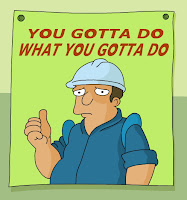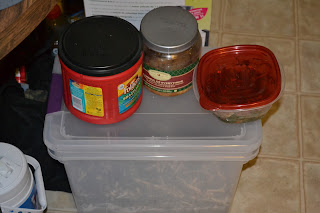Water and Nukes in 1979
Though they've rarely made a big deal about it, my parent's were involved in the 1979 protests of the Black Fox Nuclear Power plant, set to be built in Inola, Oklahoma. Many people were part of these protests, so my folks probably didn't see their role as being very large or impacting. But, to me, it was and always has been. Social activism in pursuit of social justice, equity, and sustainable practices has been something I've always admired, so to think of my parents having enough conviction about this issue to stand-up and protest makes me pretty proud of them (although I'm already proud of them for a number of reasons). What's more, it was only last week that I shared with them information they were unaware of: their contribution, and those of their fellows, was greatly significant because " It is believed to be the only nuclear power plant in the US to be canceled by a combination of legal and citizen action after construction had started" [1]. What's more, my parents were journalists at the time and my mom wrote an editorial that specifically addressed the detrimental, local impact that such a nuclear power plant would have on the already strained community water supply.
Nobel Beginnings
Some of Lin Ostrom's earliest work involved her attempt to understand how certain water systems in California could be managed cooperatively, when water is often treated as a common pool resource. Though this work predated her innovative theories about the management of common pool resources, I think that this problem was one of the first to grab her interest in the topic and set the stage for a passionate, productive, and dedicated career. Additionally, her work on this - in the late 1960s and early 1970s - sought to meet a challenge that Roseland outlines in this week's readings: "One of the greatest barriers is the departmentalization of city, municipal or regional water and wastewater services...IntegratedWater Planning...requires inter-governmental cooperation and strives for multiple-purpose and multiple-means projcects" (70). This sort of inter-governmental cooperation is the very basis of the theory of "polycentric governance" that she and her husband Vince developed and promoted for decades. These selections are fairly illustrative:
“Legal and Political Conditions of Water Resource Development” (with Vincent Ostrom). Land Economics 48 (February 1972): 1–14. Reprinted in: Michael McGinnis, ed., Polycentric Governance and Development: Readings from the Workshop in Political Theory and Policy Analysis (Ann Arbor: University of Michigan Press, 1999, pp. 42–59).
“Does Local Community Control of Police Make a Difference? Some Preliminary Findings” (with Gordon Whitaker). American Journal of Political Science 17 (February 1973): 48–76. Reprinted in: Michael McGinnis, ed., Polycentricity and Local Public Economies: Readings from the Workshop in Political Theory and Policy Analysis (Ann Arbor: University of Michigan Press, 1999, pp. 176–202).
“Do We Really Want to Consolidate Urban Police Forces? A Reappraisal of Some Old Assumptions” (with Gordon Whitaker and Roger Parks). Public Administration Review 33 (September/October 1973): 423–33.
Social Marketing Revisited
The examples, above, have consistently reinforced, to me, the idea that local, community action is fundamentally necessary for achieving sustainable water-management solutions, because those closest to the situation are the most invested, have the most to lose, and have the most to gain. However, I feel that the Roseland reading indirectly conflicts with this: though some of the examples of sustainable water & wastewater management involved community action and public-private partnerships, I feel that most of the examples were based around projects that were spearheaded by government mandates; what's worse, I feel like many of the examples sung the praises of the effectiveness of educational programs...which is somewhat contrary to the results in the social science literature that Doug McKenzie-Mohr cites in Fostering Sustainable Behavior. My sense, then, is that combinations of strategies work much better than single strategies of government enforcement, local initiative, or education, alone. But my overriding question is this: are there any patterns of best practices or common elements that obtain in each of these cases of successful, innovative, sustainable water management? Social science could do the practitioner community a lot of good if this question could be answered; and though Ostrom has gone a long way toward helping this, refining her theories to address some of these specific instances of water management - in situations where water is not treated as a common-pool resource -would really advance the cause.






